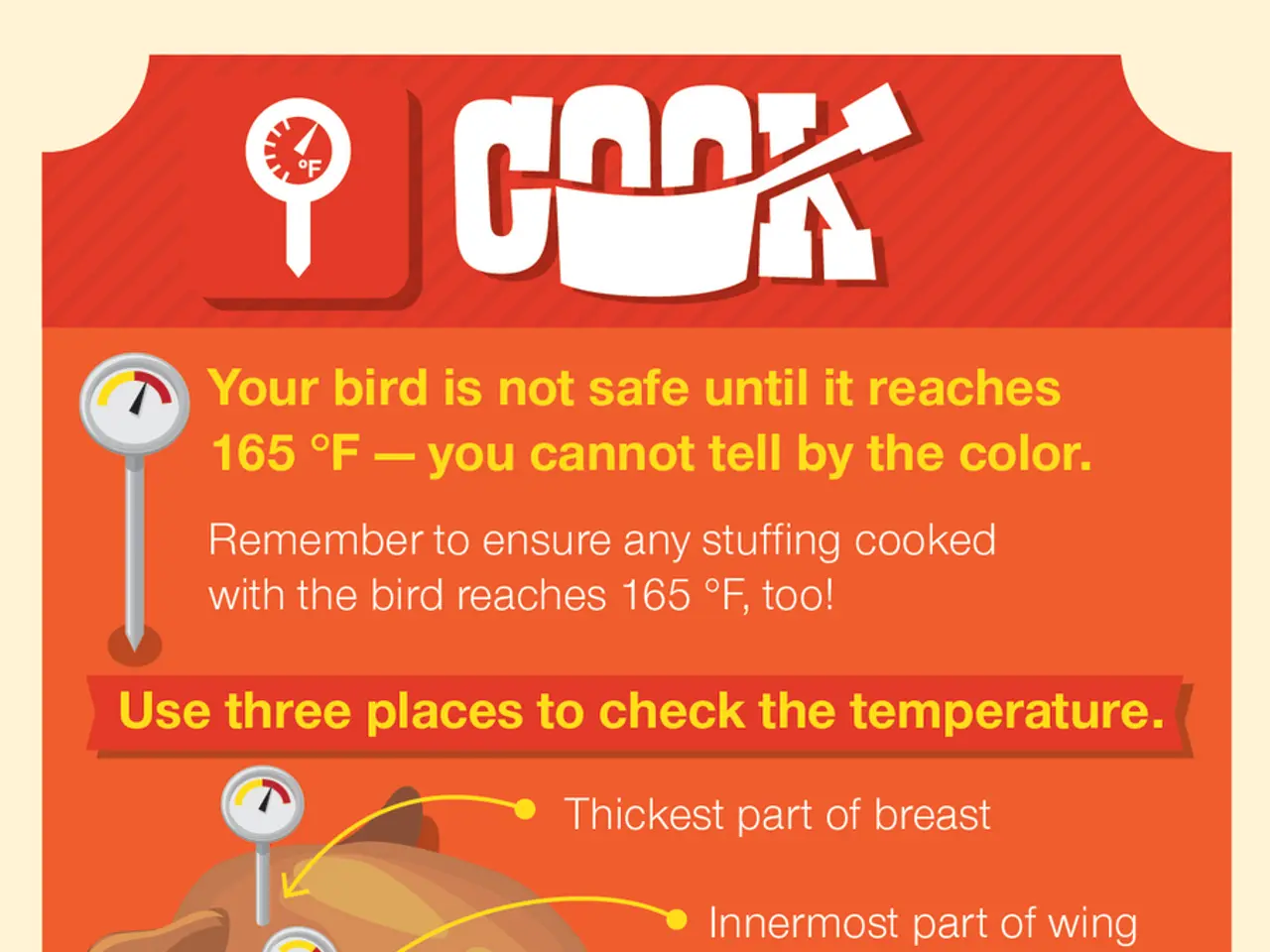Moment shouldn't be overlooked for stimulating the economy, as per Novak's advice
New and Improved Article:
Alexander Novak, Russia's Vice-Premier, Calls for Economic Heating at St. Petersburg Forum
In a spirited discussion at the St. Petersburg International Economic Forum hosted by Sberbank, Alexander Novak, Russia's Vice-Premier, proposed a reduction in the key interest rate and a shift from economic cooling to heating, as reported by a correspondent for RIA Novosti.
"The indicators are crystal clear – we need to lower the interest rates," Novak declared. "We should already transition from managed cooling to economic heating. However, we must seize the moment when it's needed, and secondly, we need to determine the pace at which we decrease the rate."
Novak's comments came in light of Russia's annual inflation over the past seven weeks, which, according to his observations, stands at 2.6%, a figure that falls below the Central Bank's target. "At this point, it's high time to lower the interest rate," the Vice-Premier asserted.
As per the Central Bank's latest assessment on June 2, annual inflation has eased to 9.8%.
The Head of Sibur, an influential gas and petrochemicals company, aligns with the Ministry of Finance's evaluation of the Russian economy.
During the business breakfast, Andrei Ganin, the Director of the Monetary Policy Department of the Bank of Russia, acknowledged the recently observed slowing inflation trend but emphasized its sustainability "needs to be confirmed."
"Prices have surged at an accelerated pace over the past year, affecting the entire economy," Ganin explained. "In such a scenario, a rapid reduction in the key interest rate is unlikely to bring about significant change in the short term, beyond a possible increase in prices."
According to Ganin, the Bank of Russia acknowledges that a high key interest rate and high lending rates pose certain difficulties for companies, including high interest expenses and shifts in investment projects. However, he pointed out that these challenges largely affect companies with high debt levels, although not all companies face such financial burdens due to increased costs caused by high inflation, such as rising production costs and inflated investment project budgets.
"Imagine a never-ending tax burden that rises unpredictably and may potentially surge even more dramatically. I'm talking about inflation, which essentially functions as an unmanageable tax that diminishes real disposable incomes and creates challenges for businesses in forecasting," Ganin continued.
Siluanov Promised Not to Raise Taxes Despite Budget Turmoil Economy This tax, Ganin argued, is "regressive in nature," disproportionately affecting the most vulnerable citizens, such as those with only one income source, like wages or pensions, with no savings or fallback options.
"Inflation is indeed a problem, yes, we must tread cautiously, but we are acting with care," added Gangan, assuring the audience that the Central Bank is striving for "inflation to be on target" and for economic growth to be "stable and balanced."
In June, the Bank of Russia lowered the key rate to 20% per annum, marking the first reduction since autumn 2022. From October 2022 to June 2023, the rate had remained at a record level of 21%.
CB Governor Elvira Nabullina shared her insights at the St. Petersburg International Economic Forum. According to Nabullina, the pace of rate cuts will depend on inflation. "We will lower the rate as inflation declines. It is currently slowing down, even faster than our expectations, and inflation expectations should also decrease," she said. By the end of the year, the key rate could dip to 15-16%, according to Sberbank CEO German Gref.
In a nutshell, the interest rate was lowered to 20% amid easing inflation but remains tight for the foreseeable future, with future reductions contingent on sustained inflation decline and economic recovery signals. Statements from Alexander Novak, Andrei Ganin, and German Gref reflect cautious optimism but underscore data-driven, gradual policy adjustments without rapid changes in the key interest rate.
- Alexander Novak, in his remarks, suggested a decrease in the interest rates as part of a broader shift from economic cooling to heating, demonstrating a strong interest in finance and business.
- Andrei Ganin, the Director of the Monetary Policy Department of the Bank of Russia, acknowledged the slowing inflation trend but expressed uncertainty about its sustainability, indicating a keen understanding of both finance and business.





